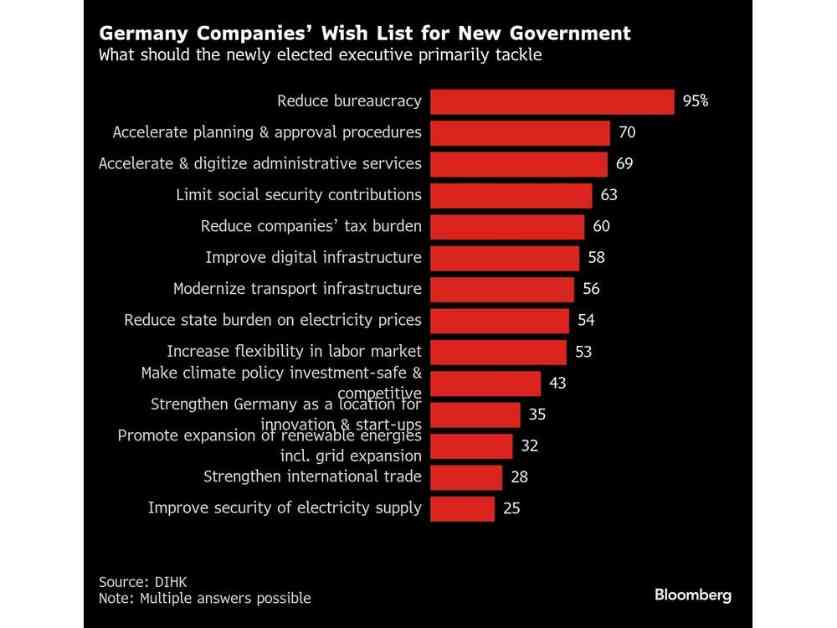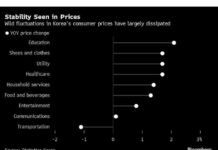Germany’s industry is in a state of alarm as the country’s competitiveness faces a serious threat. The German Chamber of Industry and Commerce (DIHK) recently conducted a survey of 4,000 companies, revealing that nearly 90% view the country’s economic policy as increasingly unreliable. More than two-thirds of businesses reported a significant decline in trust over the past four years. The DIHK is calling on the next government to take urgent action to address these concerns, emphasizing the need to reduce bureaucracy, streamline approval processes, and lower electricity costs.
Urgent Call for Action
DIHK President Peter Adrian emphasized the critical need for immediate intervention following the national elections. He expressed that Germany’s business environment is only partially competitive at present and highlighted the urgency for the new government to restore trust and credibility. Adrian stressed the importance of reducing bureaucratic hurdles, with 95% of businesses demanding a significant decrease in regulatory burdens. He called on politicians to wage war on bureaucracy, proposing a strategy where for every new rule introduced, at least two or three existing regulations should be eliminated. Adrian emphasized the necessity of a recovery law to eliminate obstacles and encourage entrepreneurial activity.
Focusing on Acceleration and Affordability
In addition to reducing bureaucracy, expedited approval processes are deemed crucial by 70% of companies. While a federal and state “acceleration pact” was established in 2023, businesses are now calling for concrete legislative action to expedite approvals. Highlighting successful cases of fast-tracked approvals for projects like LNG terminals and wind power, Adrian advocated for making these exceptions the standard practice. Lowering costs is another pressing issue, with 63% of companies advocating for a cap on social security contributions and 60% pushing for corporate tax reform. German businesses currently face higher tax rates compared to their European and industrialized counterparts. The demand for lower electricity costs is particularly pronounced in the industrial sector, with nearly two-thirds of companies expressing concern. The energy transition, according to two-thirds of respondents, is driving up operational expenses and eroding competitiveness.
Global Challenges and Growth Strategy
Rising global protectionism presents an additional challenge, as Germany is deeply integrated into world trade. DIHK Managing Director Helena Melnikov highlighted the need for stronger advocacy for new EU trade agreements and prevention of regulatory overreach from Brussels. The DIHK recommended a five-point growth strategy for the next government, outlining concrete steps to be taken within the first 100 days. Business leaders stand ready to invest and expand, but they require political support rather than additional obstacles.
As Germany’s industrial sector grapples with declining competitiveness, urgent actions are needed to streamline regulations, accelerate approvals, and lower costs. The next government faces a critical task in restoring trust and creating a more conducive business environment to safeguard Germany’s economic standing on the global stage.






















